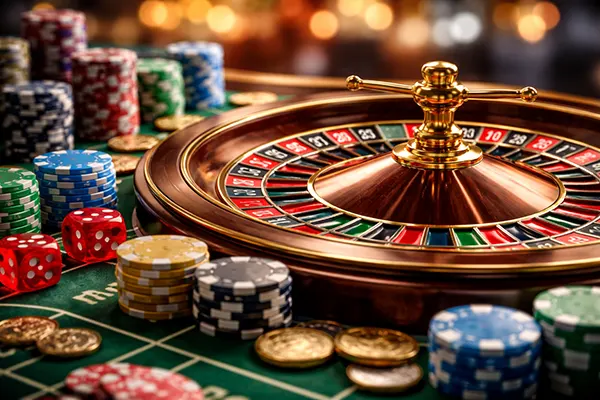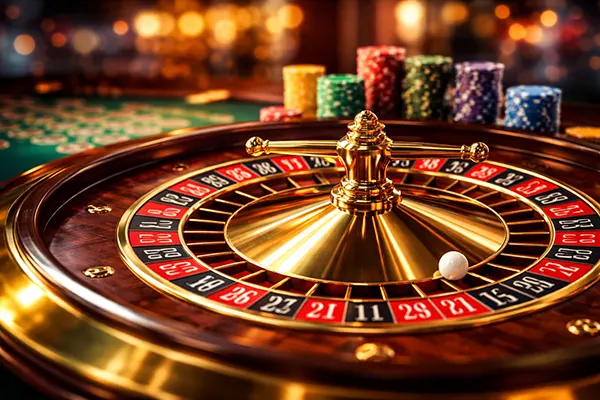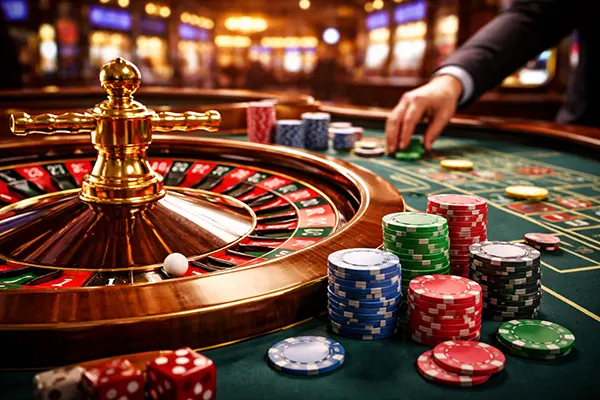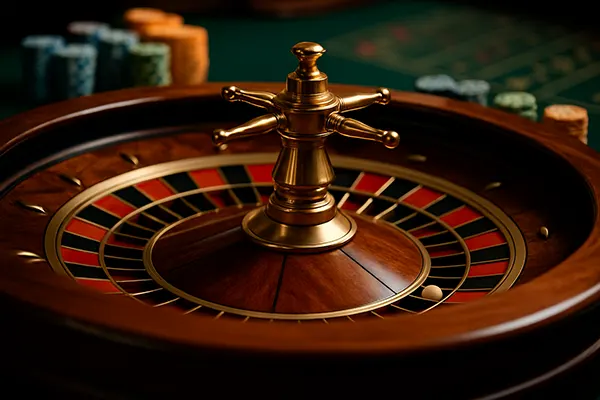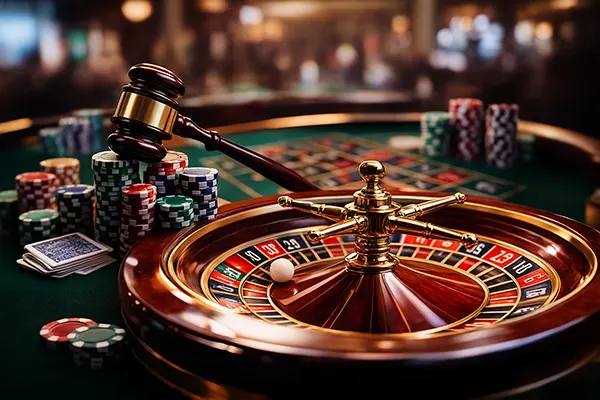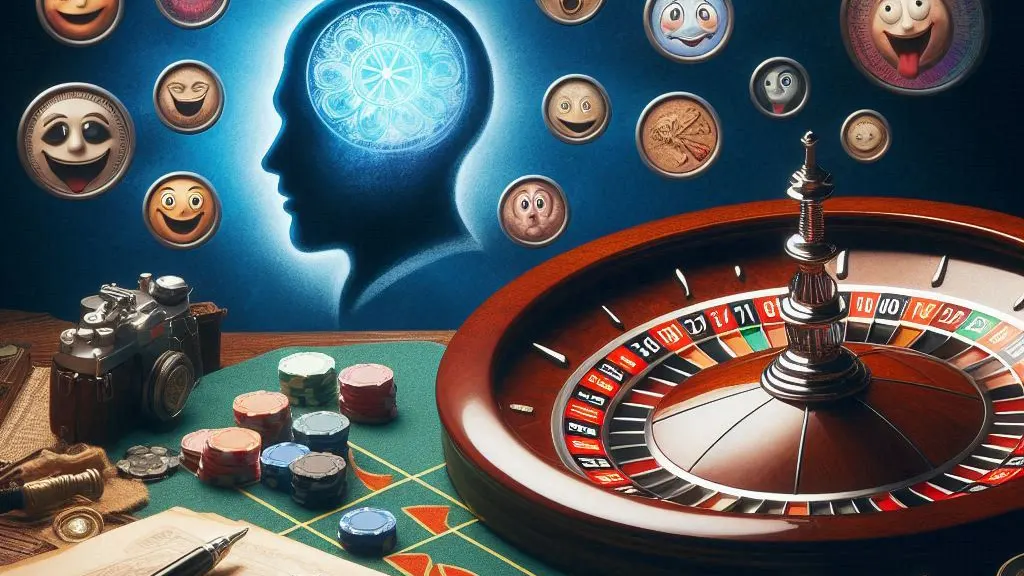
Psychology of Roulette: How Emotional Control Affects Success
Roulette is one of the most exciting casino games, blending elements of luck and strategy. However, many players overlook a critical aspect of the game — the psychological influence that can significantly impact a player’s success. Success in roulette does not depend solely on proper betting strategies but also on the ability to control emotions. In this article, we will explore how emotions and psychology affect the outcome of a roulette game and why it is essential to manage your feelings while playing.
Psychology of Playing Roulette: The Role of Emotions in Decision-Making
Roulette is one of the most popular casino games worldwide. It attracts players not only due to its simplicity but also because of the high level of emotional intensity involved. While the outcome of each spin in roulette is random, psychological factors can significantly influence the results of the game. A successful player not only employs strategic thinking but also understands the importance of controlling emotions.
Managing emotions is a critical aspect of the psychology of roulette. Many players may succumb to excitement, frustration, or, conversely, euphoria, which can influence their decisions. For instance, after a winning streak, a player may become overly confident, leading them to take risky bets. On the other hand, a series of losses can trigger panic, and the player might try to recover their money by increasing their bets, often resulting in even greater losses.
Emotions, when left unchecked, can cloud judgment, leading to impulsive decisions that may not align with a sound strategy. The key to long-term success in roulette is not only understanding the odds but also recognizing the powerful effect emotions have on our actions. By remaining calm and focused, players can make better decisions, increasing their chances of success in the game.
How Emotions Affect Betting Strategy
Emotions can dramatically alter a player’s strategy. When a player loses control of their emotions, they tend to act more instinctively rather than sticking to their planned strategy. This often leads to losses. Successful roulette players always strive to maintain composure, even when they feel like luck is not on their side. They know that impulsive bets driven by heightened emotions can lead to financial setbacks.
For example, a player who is overly confident after a few wins might increase the size of their bets, assuming that the winning streak will continue. This is a risky behavior and often leads to significant losses. Similarly, players who experience frustration after a losing streak may make larger bets in an attempt to “chase” their losses, which usually results in more significant losses. The most successful players are those who know how to regulate their emotions, maintaining discipline regardless of the outcome of each spin.
Furthermore, managing emotions isn’t just about avoiding extreme feelings like excitement or frustration. It also involves maintaining a steady mindset, even when things seem to be going well. The ability to remain level-headed allows players to assess the situation objectively, make well-thought-out decisions, and stick to their strategy, even in the face of temptation to deviate.
The Role of Emotions in Decision-Making During the Game
Emotions are a natural part of any game, and roulette is no exception. However, in a game with such a high level of randomness as roulette, emotional control becomes more important than any strategy. A player who gives in to strong emotions is prone to making mistakes in decision-making. The psychology of roulette requires the ability to maintain balance, even when the stakes are high, and the outcome is unpredictable.
There are two main emotional states that players commonly experience: excitement and frustration. Both of these states can be equally dangerous if not managed correctly. Excitement can push a player to make uncontrolled bets in an attempt to win more, while frustration can lead the player to “chase” their losses, increasing their bets after a series of losses.
Emotions, when not controlled, can cause players to deviate from their strategy and make decisions based purely on instinct or desperation. These emotional decisions often lead to poor outcomes. In contrast, players who remain calm and stick to their strategy, regardless of short-term wins or losses, are more likely to succeed in the long run. Understanding the emotional dynamics of the game allows players to make better decisions and avoid impulsive actions that could hurt their chances of winning.
Emotional Self-Control Techniques for Roulette Players
There are several techniques that can help players maintain emotional control during the game. One of the most effective strategies is the “break” technique. When a player feels their emotions starting to spiral out of control, it’s essential to take a short break. This pause helps clear the mind and reset the emotions, allowing the player to return to the game with a calm and focused mindset.
Another important strategy is to set financial limits before starting to play. Knowing how much you’re willing to lose can prevent you from making rash decisions. It’s also vital to limit the number of bets or the amount of time spent playing, as prolonged gaming sessions can cause emotional exhaustion, leading to poor decision-making. By establishing clear boundaries, players can avoid emotional pitfalls and make more rational decisions during gameplay.
Additionally, developing a sense of mindfulness can be a helpful tool. Players who practice mindfulness can become more aware of their emotional state and how it influences their actions. This awareness helps them avoid making impulsive bets based on emotions like frustration or excitement, instead sticking to their strategy and maintaining emotional equilibrium.
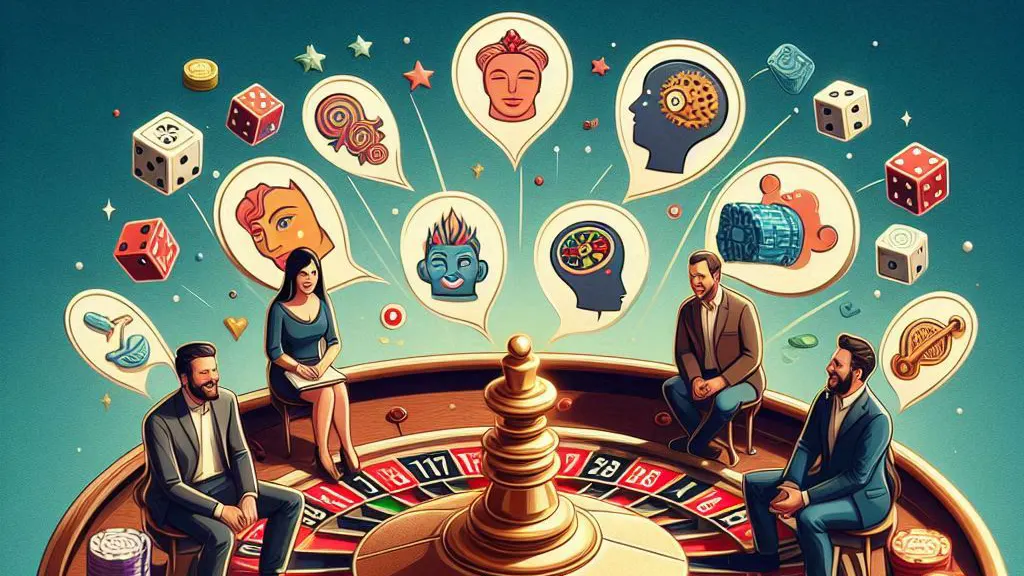
The Impact of Long-Term Emotional Strategies on Success in the Game
Long-term emotional strategies in roulette not only involve self-control but also the development of psychological resilience. Players who remain calm during losing streaks or winning streaks have a greater chance of success over time. The key is to balance risk and caution effectively. While it’s tempting to take bigger risks after a win, players who are emotionally stable tend to avoid unnecessary risk-taking.
Success in roulette doesn’t always depend on winning or losing — it’s about having an emotional strategy that allows players to stay true to their principles. The psychology of roulette requires the ability to react to unpredictable situations and remain calm even in stressful moments. Players who can navigate emotional turbulence with resilience are more likely to experience long-term success in the game.
One of the most significant benefits of maintaining emotional stability is that it helps players think more clearly, even under pressure. When a player is calm, they are less likely to make impulsive decisions that could negatively affect their chances. In contrast, players who give in to emotional impulses often make decisions based on short-term feelings, leading to poor outcomes. Therefore, emotional control is not only about avoiding negative emotions but also about being able to approach the game with a long-term perspective.
How Psychological Aspects Influence Long-Term Profitability
Players who possess high emotional self-control can stick to their strategy even in the most emotionally charged situations. They understand that roulette is a game of chance, and thus, it’s essential to manage emotions rather than relying solely on luck. These players are able to evaluate their wins and losses in the context of their long-term strategy, giving them an edge over those who act impulsively based on short-term emotions.
Over time, these emotionally disciplined players are more likely to maintain a profitable edge in roulette. They understand the importance of emotional balance, not just in the short term but also as part of their overall approach to the game. By staying focused on their strategy and not allowing emotions to dictate their decisions, these players improve their chances of success in the long run.

